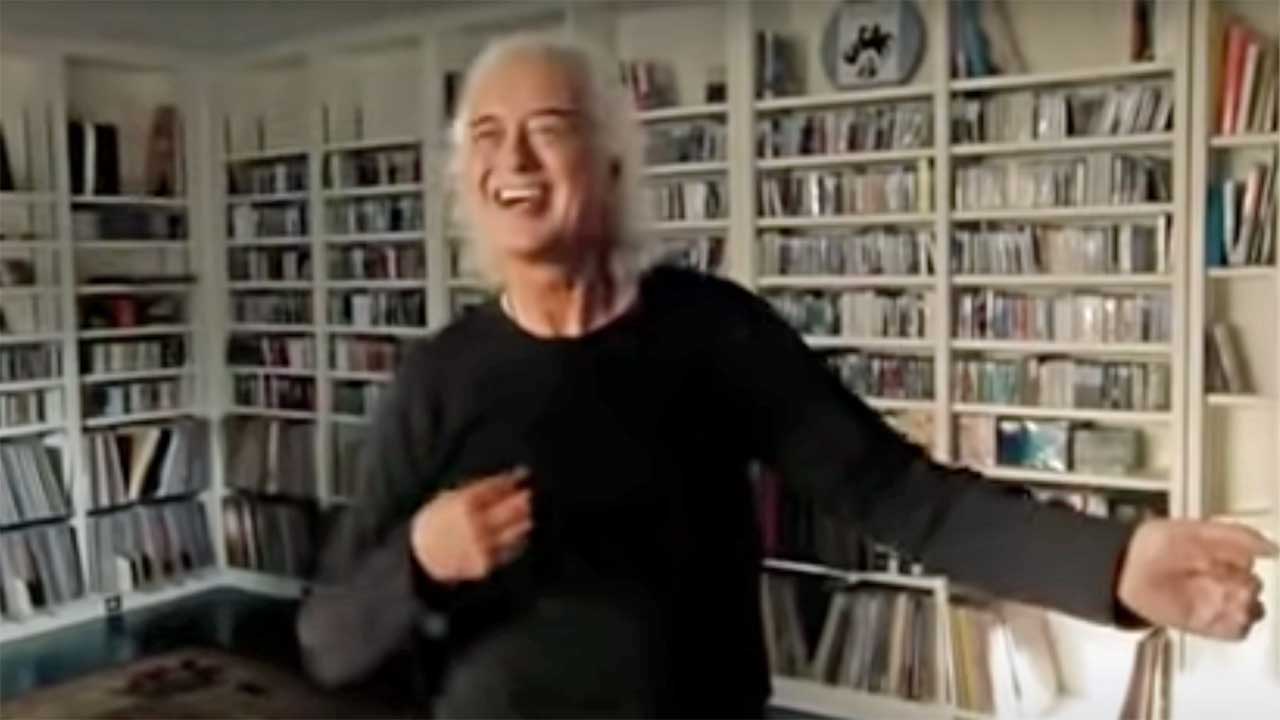
Back in 2008, the documentary It Might Get Loud was released. An insightful look at three very different guitarists with three very different stories to tell – Led Zeppelin's Jimmy Page, The Edge from U2 and White Stripes founder Jack White – the film explored the trio's very different paths to stardom.
Highlights come thick and fast: Jack White building a makeshift guitar from an empty Coke bottle and a wooden plank. The Edge showing how his deceptively intricate, stadium-filling riffs could be extraordinarily simple when laid bare. And Jimmy Page, cranking up his amp and churning out the riff to Whole Lotta Love while the others look on like delighted fanboys.
It's that final clip that's received the most attention since the film was released, but there's some delightful, more low-key footage elsewhere in the film, when Jimmy Page – surrounded by his record collection – plays the song that lit the fuse for his obsession with the guitar.
The song is Link Wray's 1958 hit Rumble, and Page's eyes light up as he drops the needle on the record. His enthusiasm grows further as Wray's repetitive, vibrato-drenched riff changes character over the course of the song, and the Zeppelin man provides a running commentary before finally giving in to temptation and playing some enthusiastic air guitar. It's a joy.
The footage cuts mid-song to Page, who tells The Edge and White about the effect the song had on him when he first heard it.
"I listened to anything with the guitar on when I was a kid, and all those different approaches and the echoes," says Page. "The first time I heard The Rumble [sic] it was something that had so much profound attitude. It really does!"
It really did. During 1950s, America was enjoying one of its regular bouts of national fear regarding whatever it was that young people were getting up to (see also: The Satanic Panic, Dungeons & Dragons, video games), and the current "threat" was juvenile delinquency.
Anything that might possibly be promoting violence was at risk of censorship, and Rumble – gang slang for "street fight", as any fan of West Side Story will tell you – fit the bill nicely. The song sounded so dangerous that it banned by radio stations across the east coast, and when the leather-clad Link Wray appeared on American Bandstand to promote the song, host Dick Clark deliberately didn't mention its title, lest conservative America should rise up out if its collective armchair in indignant, red-faced fury.
Of course, such attempts to throttle Rumble's reach only added to its allure, making it more popular than ever. And inspiring Jimmy Page, decades later, to jig around the room in delight.







